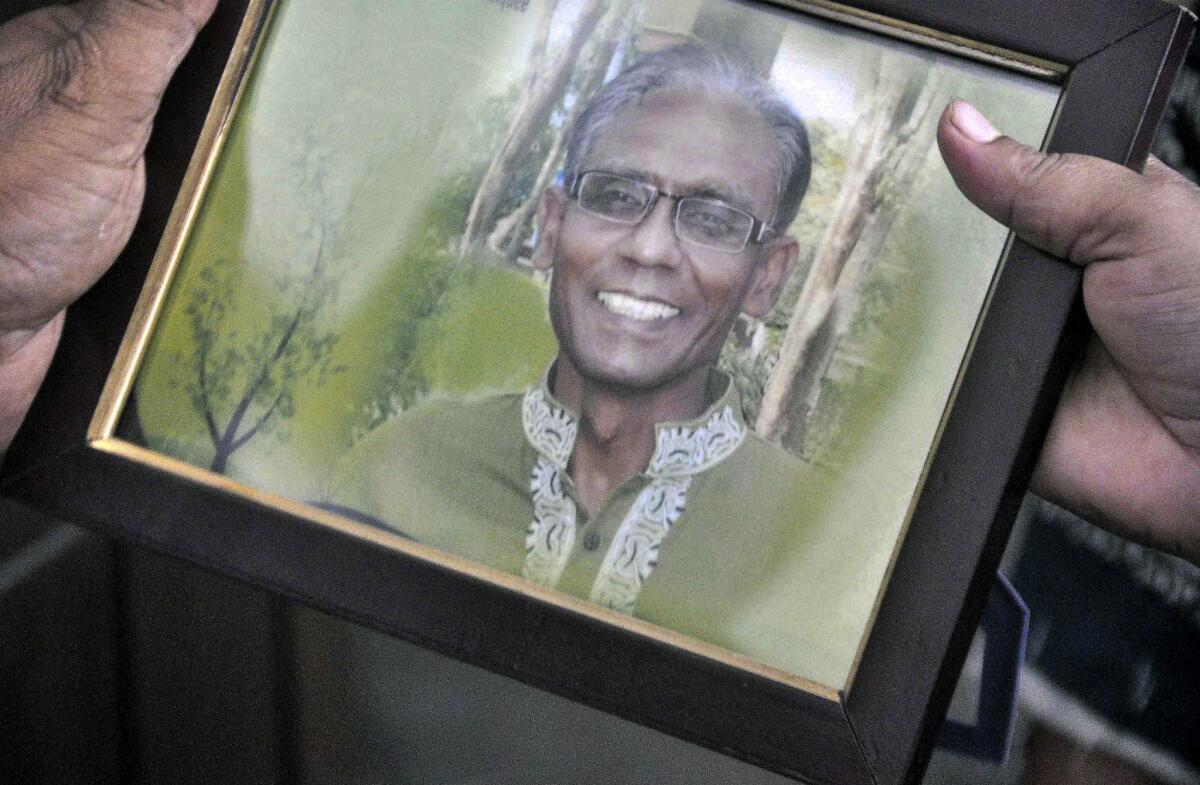Islamist militants suspected in slaying of professor in Bangladesh

A portrait of Rezaul Karim Siddique, a Bangladeshi university professor who was hacked to death in Rajshahi on April 23.
- Share via
Reporting from DHAKA, BANGLADESH — Police in northwestern Bangladesh have found similarities between the killing of a university professor Saturday and recent slayings of bloggers and secular activists by Islamist militants.
Rezaul Karim Siddique, an English professor at Rajshahi University, was hacked to death when he went to catch a bus to campus around 7.30 a.m., police said. The attack took place near Siddique’s house and was carried out by two assailants on a motorcycle, police said citing witnesses.
“Professor Rezaul Karim Siddique has been killed in the same way that the bloggers and online activists were slain,” Rajshahi Metropolitan Police Commissioner Mohammad Shamsuddin told reporters at the scene. “That leads to the suspicion that this might be the handiwork of radicals.”
See the most-read stories this hour >>
Islamic State claimed responsibility for the attack, accusing the professor of advocating for atheism, according to the SITE Intelligence Group, which monitors militant websites.
The extremist group has claimed other attacks in Bangladesh, where a series of deadly assaults against secular bloggers, minority Shiites, Christians and two foreigners has spread fear in the past year.
The government has dismissed those claims, however, saying Islamic State does not have a presence in the country. Security forces have stepped up a crackdown on homegrown Islamist militants, who they say are behind the attacks.
Bangladesh is an officially secular country, but more than 90% of its 160 million people are Muslim.
NEWSLETTER: Get the day’s top headlines from Times Editor Davan Maharaj >>
At least three other professors at Rajshahi University have been killed in recent years. After Saturday’s attack, hundreds of students and faculty members held a demonstration on campus and blocked a highway for about 45 minutes to demand justice.
Family members said they were not aware of any threats against Siddique, who was 58. They described him as a free-minded person who was involved in cultural organizations and edited a literary magazine.
Kader is a special correspondent.
ALSO
How Japan came to rank worse than Tanzania on press freedom
Death toll in Taliban bombing and gunfight rises to 64; Afghan president calls the attack ‘inhuman’
Despite contaminants found on campus, ill students and state TV exposé, school in China stays open
More to Read
Sign up for Essential California
The most important California stories and recommendations in your inbox every morning.
You may occasionally receive promotional content from the Los Angeles Times.













